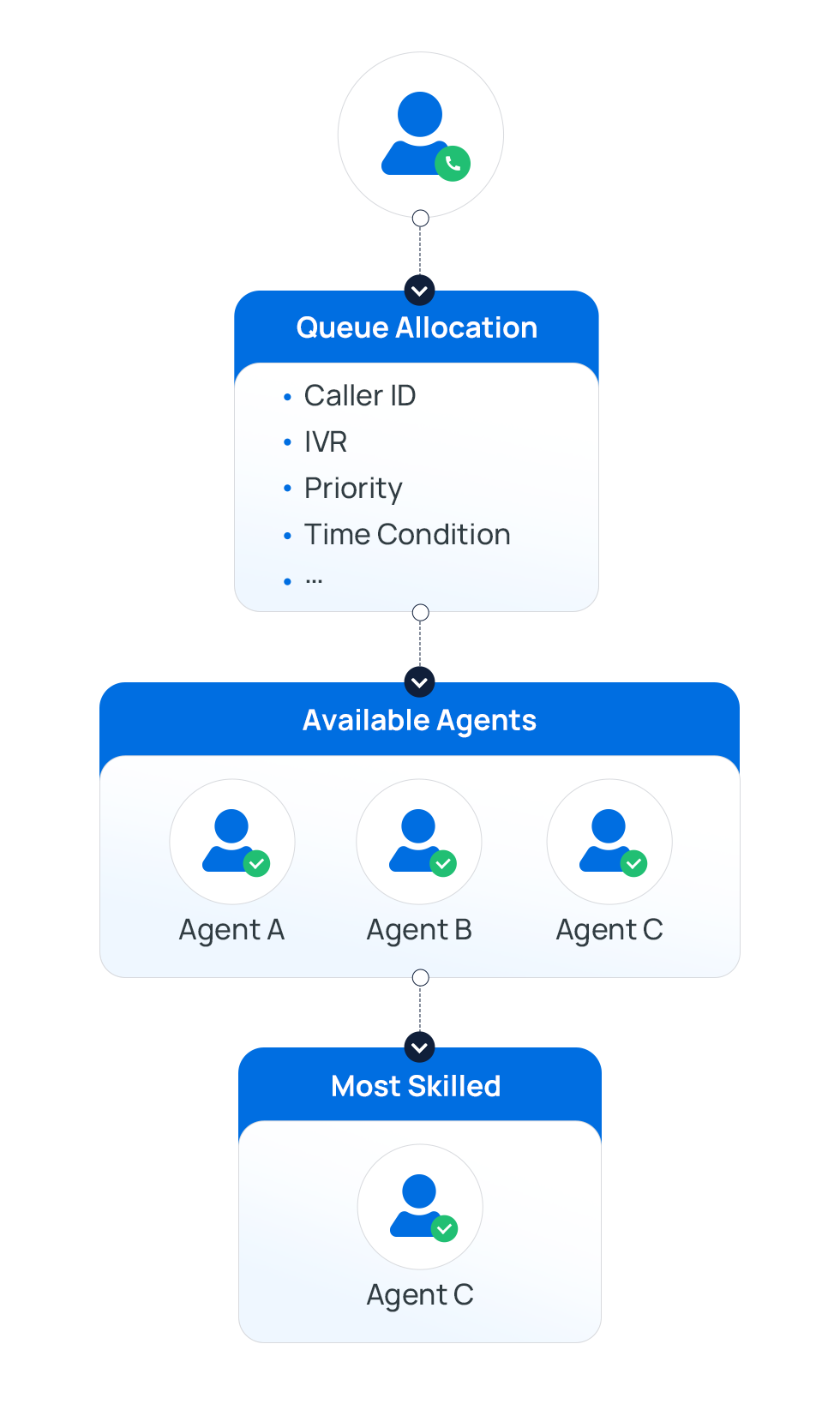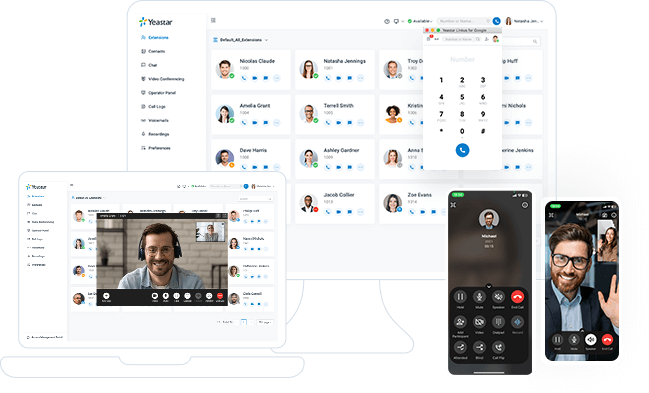What is skill-based routing?
Skill-based routing (SBR), also known as skill-based call distribution, is a call-assignment strategy employed in call centers to direct incoming calls to the most qualified agents. Rather than assigning calls randomly, skill-based routing pairs customers with agents who possess the requisite skills and knowledge. This guarantees that customers receive optimal assistance while minimizing the need for issue transfer or repetition. By maximizing resource utilization and enhancing customer satisfaction, it enables companies to optimize their operations.
Skill-based Routing vs Automatic Call Distribution
Skill-based routing is an improvement over traditional Automatic Call Distribution (ACD) systems, as it operates in a slightly different manner.
In a typical ACD system, calls are directed to the first available sales or support agent using queue-based routing, without considering the specific skills needed for handling each call.
However, skill-based call routing ensures that callers are connected with the most suitable agent based on their requirements. While callers may experience slightly longer wait times, they can expect prompt assistance from an agent who is well-equipped to address their needs effectively.
How does skill-based routing works?

The Skill-based routing in Yeastar phone system operates by matching incoming customers with the most suitable agents based on their skill levels. Here is a simplified explanation of how skill-based routing works.
Set Up Skill Level for Agents
The administrator can set the skill level of the agents in the queue in advance based on some indicators. The lower the number, the higher the skill level.
The skill level typically consider factors such as:
Product or service level
Levee expertisel of experience
Language proficiency
Technical skills
Problem-solving abilities
Set Up Skill-based Routing Strategies
When an call come into a queue, agents will get a phone ring according to their skill level. The higher-skilled agents will get a ring first. When not available, the call will automatically move on to the less-skilled one.
Among agents of equal skill levels, it depends on the ring strategies. And Yeastar phone system provides you with 5 different queue ring strategies for better workload sharing, including Ring All, Least Recent, Fewest Calls, Random, Rrmemory and Linear. Learn More.↗
Using the configured routing rules, the call will be assign to suitable queues. After considering the available agents’ skill levels and queue ring strategies, the system rings agents who are best suited to assist the customers.
Why businesses need skill-based routing?
Skill-based routing is essential for call centers because it allows them to optimize their operations and enhance customer satisfaction. Here are the benefits of skill-based routing:
Improved customer experience: Swiftly connect customers with the most suitable agent. Resolve issues in a single call.
Increased efficiency: Streamlined call handling as callers are matched with agents possessing the right skills.
Enhanced agent morale: Agents’ confidence and job satisfaction soar as they receive calls that align with their skills.
Flexible resource allocation: Workload is evenly distributed among agents based on their availability and skills, optimizing productivity.
Personalized service delivery: Provide Tailored assistance, building trust and loyalty with customers.
Common FAQs

The complete communications solution
Available both in the cloud and on-premises, Yeastar P-Series Phone System unites calls, video, omnichannel messaging, integrations and more in one simple system for your seamless communications anywhere.
Get started with 30-day free trial
Create your Yeastar phone system in minutes & see what all-in-one communications can do for your business today.
X
